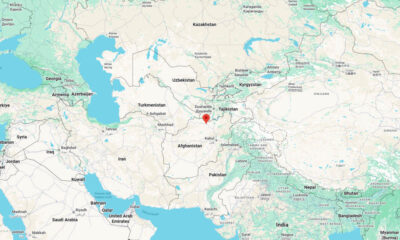Reviews
Giving Birth in Brazil for Citizenship: What You Need to Know

Each year, thousands of foreign nationals travel to Brazil not for its beaches or carnival, but for a very specific purpose — to give birth. Thanks to Brazil’s jus soli law, any child born on Brazilian soil is automatically granted citizenship, regardless of the parents’ nationality. For many families, this opens a potential path to permanent residency and, eventually, citizenship for themselves.
But giving birth abroad isn’t a simple medical decision — it’s a legal, logistical, and cultural journey. If you’re considering this route, it’s essential to understand the process, costs, and challenges ahead. That’s where early planning — and, ideally, support from experts — can make a big difference.
Is It Legal to Give Birth in Brazil as a Foreigner?
Yes, it is. Brazil does not restrict foreigners from giving birth in the country, and its public health system (SUS) provides emergency care and childbirth services to anyone, regardless of immigration status. However, most foreigners opt for private hospitals, where care is more reliable — though not cheap.
That said, legality doesn’t mean simplicity. Airlines may refuse boarding late in pregnancy, and border officers might ask additional questions if they suspect medical tourism. Travel plans must consider medical deadlines, airline policies, and visa restrictions.

Brazil allows many nationalities to enter visa-free for up to 90 days. But if you’re coming specifically to give birth, that time might not be enough — especially considering the bureaucracy involved after the baby is born. You may need to extend your stay or adjust your status. Navigating this can be tricky, particularly if you don’t speak Portuguese. Some families work with legal experts to avoid delays and ensure everything goes smoothly. For example, iWorld offers structured support for parents pursuing residency through their child’s citizenship, helping them handle paperwork, registration, and legal formalities in advance.
How Brazilian Citizenship Works
Brazil follows the jus soli principle: any child born on its territory is automatically a Brazilian citizen, no matter the parents’ nationality or immigration status.
What this means in practice:
- The baby becomes a Brazilian citizen at birth. This status is granted immediately once the birth is registered at a civil registry office (Cartório).
- The parents do not get citizenship automatically. However, being the parent of a Brazilian child allows you to apply for permanent residency — a key step on the path to naturalization.
- Both parents must be legally identified. While single mothers can register a child without the father’s presence, leaving his name off the certificate may limit international travel and legal rights later.
To register the birth and apply for a Brazilian passport for your child, you’ll need:
- A birth declaration issued by the hospital;
- Valid passports and ID documents for both parents;
- A local address (for registration purposes);
- Time — delays are common due to bureaucracy.
Once the birth certificate is issued, you can start the process of applying for a passport for your baby. Without it, you won’t be able to leave Brazil — even to return home.
⚠️ Important: The registration and passport process often takes longer than expected, especially if one parent is absent or if hospital staff are unfamiliar with foreign procedures. To avoid issues, some parents choose to work with local legal consultants or multilingual agencies such as iWorld, who specialize in handling complex cross-border family documentation.
Residency for Parents of a Brazilian Child
While your baby gets Brazilian citizenship automatically, you won’t. To stay in the country legally beyond your tourist visa — and eventually pursue citizenship yourself — you’ll need to apply for permanent residency based on family ties.
Here’s how the process works:
- Apply for residency through the Ministry of Justice (Ministério da Justiça).
- Provide documents, including:
- Your child’s Brazilian birth certificate;
- Your passport and ID;
- Proof of financial stability;
- Criminal background checks from your country of origin.
- Prove your relationship to the child — usually straightforward for mothers, but it can be more complicated for fathers or if the birth certificate lists only one parent.
- Remain in Brazil during the process. Leaving the country could interrupt or invalidate your application.
Timelines and challenges:
- The application may take several months to over a year to be approved.
- In the meantime, you must maintain legal immigration status — which can be complicated if your 90-day tourist window expires before your residency is granted.
- All paperwork must be submitted in Portuguese, often with certified translations and notarizations.
- Bureaucratic errors are common, especially in regions less familiar with foreign applicants.
Because of these challenges, many families choose to work with local immigration experts. Services like iWorld help parents prepare documents in advance, avoid common legal pitfalls, and apply for residency without unnecessary delays. Their specialists also advise on issues like language requirements and future naturalization — something you’ll want to plan for if you’re thinking about staying in Brazil long-term.
Bureaucracy: Expect Delays, Confusion, and Red Tape
Brazil is known for its vibrant culture — and equally well-known for its complicated bureaucracy. Giving birth as a foreigner involves more than just hospital bills. Registering your baby, securing travel documents, and applying for residency often means navigating unclear processes, inconsistent rules, and under-informed staff.
Common bureaucratic issues:
- Birth registration delays: Not all registry offices (Cartórios) are familiar with handling foreign parents. Errors in paperwork are common, especially if only one parent is present or documentation is incomplete.
- Passport complications: Even if your baby is a Brazilian citizen, they cannot leave the country without a passport. Issuing one can take weeks to months, especially if the civil registry made mistakes or additional documents are requested.
- Exit permissions: To fly out of Brazil with your child, you may need a notarized travel authorization signed by both parents. If the father is absent or not listed, this can lead to additional scrutiny or refusal to issue exit documents.
🛑 Real-life warning: Some parents have been stuck in Brazil for months, even with valid documents, simply because officials were unsure how to process their case. Hospital staff may speak English — but registrars, immigration officers, and airline agents often don’t. Miscommunication causes costly delays.To avoid these pitfalls, it’s best to prepare every document in advance and bring translated, notarized, and legalized copies where possible. If you’re not fluent in Portuguese, working with a bilingual consultant or lawyer can save time and spare you stress. Teams like iWorld help families navigate this maze, ensure that registration is done correctly, and provide local assistance if problems arise.

Hospitals and Birth Costs in Brazil
Brazil offers both public and private healthcare systems. While it’s technically free to give birth in a public hospital (SUS), most foreign parents choose private care for safety, reliability, and comfort — especially in a country where they don’t speak the language.
Public hospitals (SUS):
- Cost: Free — even for foreigners.
- Conditions: Often overcrowded and underfunded, with limited privacy and overstretched staff.
- Risks: Higher chances of complications being overlooked, less personalized attention, limited English spoken.
Private hospitals in São Paulo:
These are the most popular — and expensive — choices among foreigners planning childbirth in Brazil.
Here are three well-regarded maternity hospitals:
- Hospital Israelita Albert Einstein
- Known for top-tier facilities, English-speaking staff, and excellent neonatal care.
- Estimated cost: $8,000–$12,000 USD (delivery + hospital stay + doctors’ fees).
- Hospital e Maternidade Santa Joana
- Specializes in women’s health and childbirth; offers NICU services.
- Estimated cost: $5,000–$9,000 USD depending on delivery type.
- Hospital São Luiz (Rede D’Or)
- Offers a range of maternity packages, including natural and cesarean deliveries.
- Estimated cost: $4,000–$8,000 USD.
💡 Tip: Costs can vary depending on the delivery method, hospital package, length of stay, and whether specialists are needed. If you want to plan everything in advance — including birth preferences, doctor selection, and insurance compatibility — experts like iWorld offer guidance on choosing the right clinic and avoiding surprise bills.
If your budget is tighter, you may consider smaller private hospitals or maternity clinics. But always research reviews, check for pediatric intensive care (NICU), and confirm the availability of English-speaking staff.
Accommodation, Safety, and Everyday Life
Planning to spend a few months in Brazil? Then housing, security, and language will shape your experience just as much as hospital quality.
Where to Stay
In São Paulo, housing costs can vary wildly. A furnished apartment in a central and safe neighborhood — like Bela Vista or Moema — can cost between $600 and $1,200 USD per month.
Prefer a quieter place? Consider São Caetano do Sul, a calm and well-organized suburb with good healthcare and lower crime rates. You’ll still be close to São Paulo’s hospitals but might save significantly on rent.For short stays, most foreigners use Airbnb or QuintoAndar, since renting long-term as a tourist (without a CPF or local bank account) is difficult.

Safety Considerations
São Paulo is safer than many Brazilian cities — but it’s still a major metropolis with common big-city issues: pickpocketing, scams, and areas best avoided after dark.
Apartments in secured buildings are generally safer than private houses. Choose buildings with 24/7 security, gated access, and front desk staff if you’re staying alone or with a newborn.
Language Barriers
Portuguese is essential. While some doctors and private hospital staff may speak English, most nurses, civil servants, landlords, and service workers do not. Basic tasks — like registering your baby or arranging utilities — can quickly become frustrating.
If you’re not fluent, consider hiring a local interpreter or working with bilingual support services. For example, iWorld offers in-country assistance with housing, logistics, and communication — especially helpful if you’re navigating everything alone.
Ethical Debates and Local Sentiment
While giving birth in Brazil for citizenship is legal, it’s not without controversy. Among Brazilians, this practice — often labeled birth tourism — sparks heated debate.
Many locals question the fairness of foreigners using public resources or securing citizenship for strategic reasons without any long-term intention to live in the country. Reddit discussions reflect this sentiment clearly: some users openly voice concern about people “exploiting the system,” especially when public hospitals are involved.
“This is not why we have jus soli,” one user wrote. “They don’t pay taxes, don’t learn the language, and leave right after.”
At the same time, others argue that if someone pays out-of-pocket, uses private care, and follows legal procedures, they’re not exploiting anything — just making a strategic personal decision.
The takeaway? Legality doesn’t equal acceptance. If you’re coming to Brazil for childbirth, be prepared for a mix of reactions — especially if you’re vocal about your intentions online or offline.
That’s why many families choose to work with professionals who can help them integrate quietly and respectfully. Services like iWorld don’t just manage logistics — they also offer cultural briefings and advice on how to navigate sensitive topics during your stay.
Final Thoughts: A Complex but Possible Path
Giving birth in Brazil for the sake of citizenship is legal and technically feasible — but far from simple. It’s not a quick loophole or a cheap shortcut. It’s a project that demands time, money, emotional resilience, and deep preparation.
If you’re still considering this route, here’s what to keep in mind:
- Start early. Visa timing, travel restrictions during pregnancy, and unpredictable bureaucratic delays can derail even the best plans.
- Don’t underestimate the paperwork. From birth registration to passport applications and residency requests, every step is slow and often confusing — especially without fluent Portuguese.
- Be prepared for unexpected costs. Medical care, legal help, housing, and overstay penalties can all add up quickly.
- Respect the system. Using private care, paying taxes, and showing a genuine interest in the country will help you avoid backlash — and build a smoother path toward residency or even naturalization.
For many families, the most practical decision is to work with a trusted local team from day one. That includes help with legal paperwork, hospital arrangements, housing, and translations. Agencies like iWorld specialize in exactly this type of support — allowing you to focus on your baby, not on fighting bureaucracy.
Having a baby abroad should be about safety and stability — not confusion and risk. With the right preparation and support, Brazil can offer both.

-

 US News5 days ago
US News5 days agoJetBlue flight diverts to Tampa after altitude drop injures at least 15
-

 Breaking News2 hours ago
Breaking News2 hours agoUPS cargo plane crashes into buildings near Louisville airport; injuries reported
-

 World1 week ago
World1 week agoU.S. Navy helicopter and fighter jet crash in South China Sea; all crew rescued
-

 Legal1 week ago
Legal1 week agoMultiple injured in shooting at Lincoln University in Pennsylvania
-

 World2 days ago
World2 days agoStrong 6.3 earthquake strikes northern Afghanistan; felt across Pakistan
-

 World2 days ago
World2 days agoProtesters storm government building in Mexico after killing of local mayor
-

 World3 days ago
World3 days ago10 people stabbed on train in Huntingdon, England
-

 US News6 days ago
US News6 days agoTrump says U.S. will resume nuclear weapons testing ‘on an equal basis’



